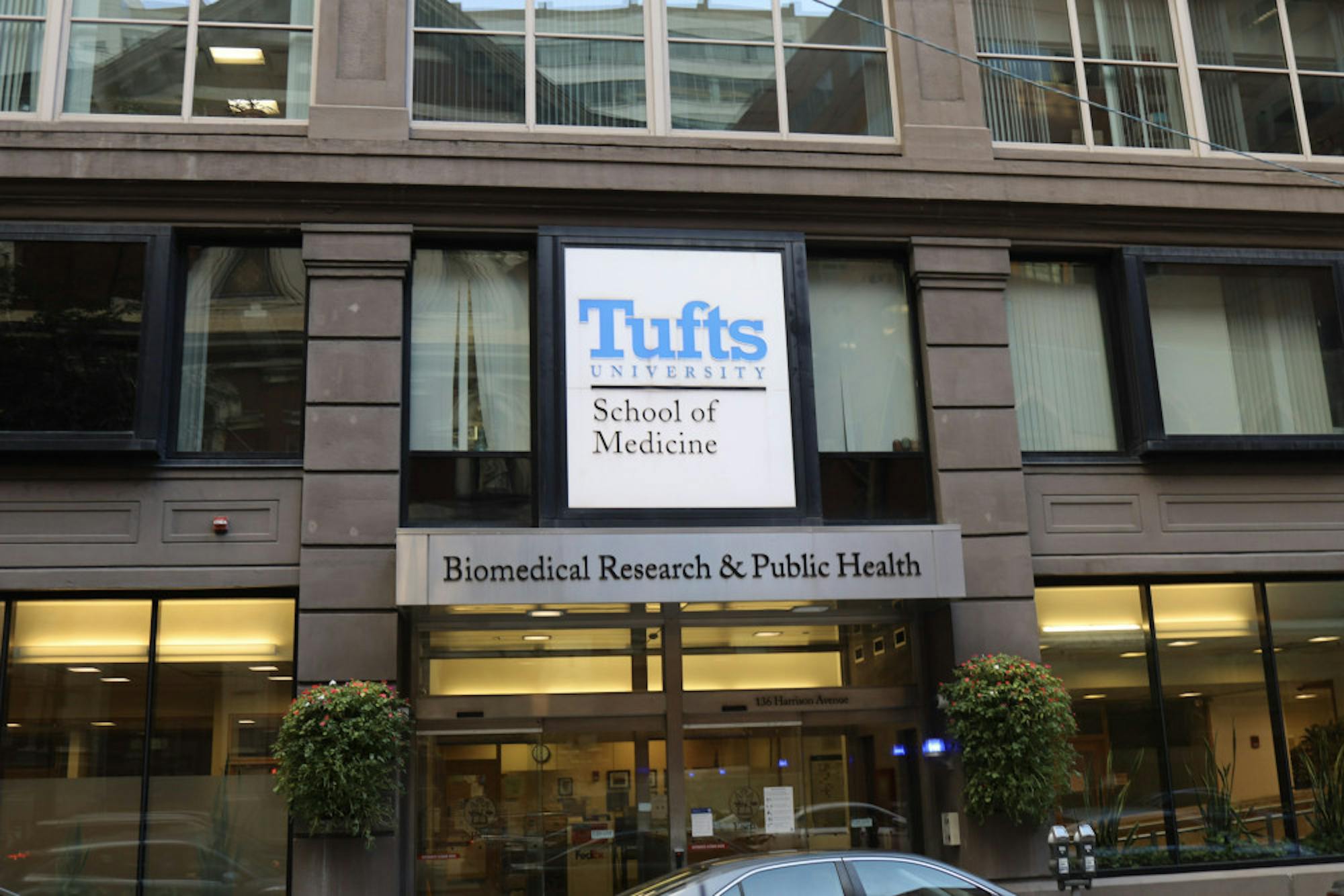Massachusetts colleges have seen a rapid increase in public health programs in response to the COVID-19 pandemic. The number of applications to the Tufts University School of Medicine's Master of Public Health program increased threefold.
Aviva Must, dean of public health and professional degree programs, said the pandemic likely contributed to an increased interest in public health fields.
"There is no question the pandemic has increased interest in public health, generally, and in infectious disease epidemiology, in particular," Must said. "We believe that the pandemic led many to reflect upon their current careers. Many decided to make a change — graduate education often figures into career transitions.”
However, Must believes that this increase in applications can also be attributed to steps TUSM took in order to adapt to the pandemic.
“We launched our new online MPH program in fall 2020, so our reach increased dramatically, as students did not need to relocate to get their MPH with us,” Must said.
Must continued by discussing how the university — as a result of increased applications and enrollment — has provided accommodations to faculty and students, as well as pandemic-related events.
“We have definitely expanded our faculty and student support, for both our residential and online public health program,” Must said. "We've held many extracurricular events related to the pandemic: symposia, seminars, panels, etc.”
Must clarified that the curriculum has not been specifically modified to adapt to the pandemic.
"With specific courses, readings and examples certainly draw heavily on current public health news, but we've not specifically modified our public health curriculum as a result of the pandemic," Must said.
At the University of Massachusetts Amherst, however, new courses related to the pandemic have been integrated into the curriculum. Course discussions include the development of vaccines and how human behavior has impacted the overall outcome of this pandemic.
Boston University also restructured its public health program to give students a look back at the history of public health, incorporating the COVID-19 pandemic into its curriculum.
This trend of increasing applicants in public health programs can be seen throughout the state of Massachusetts and the United States.
Enrollment in the UMass Amherst public health program grew 20% among doctoral students, 10% for those in master’s programs and 5% in undergraduate programs.
In an interview with theBoston Business Journal, Anna Maria Siega-Riz, deanof the School of Public Health and Health Sciences at UMass Amherst, said that even though the data from fall 2021 isn’t complete, enrollment is up another 30% among graduate students.
In the United States as a whole, public health schools saw a 23% jump in applicants for master’s and doctoral programs from fall 2019 to fall 2020, and are reporting an even bigger increase so far in this application cycle, according to the Association of Schools and Programs of Public Health.
Another reason public health programs are drawing more people, officials say, is because young people committed to social justice now view the field as an avenue for addressing racial inequities, given the disparate toll of the pandemic on people of color in the United States.
Brown University’s public health school said in astatement that applications for its MPH program had jumped 116% from this point last year. Among Black and African American candidates, applicants increased by 187%; among Latinx candidates, the increase was 137%.
While demand for public health education increases, so too do job opportunities in public health.The Bureau of Labor Statistics predicted that the number of health education specialists and community health workers will increase by 16% from 2020 to 2030. In this time frame, a 30% increase in epidemiologists, a 32% increase in medical and health services managers and a 9% increase in nurses is also expected.
Professor Jennifer Allen of the Department of Community Health did not respond to a request for comment by press time. Janice Gilkes, assistant dean for Student Services, who oversees the public health and professional degree programs at TUSM, declined a request for comment.
Looking forward, Must is confident that interest in public health will remain high, given that the COVID-19 pandemic will not have an abrupt end date.
"[The university anticipates] there will be new novel coronaviruses, so future pandemics are likely," Must said. "Overall, I imagine that there will be some sustained increase [in interest in public health], but not likely to the same extent as we saw during the height of the pandemic."
However, Must said there is a bright side.
"These unfortunate events stand to increase awareness of the role of public health in keeping the population healthy, during public health emergencies and during times of calm," Must said. "My hope would be that the light that has been shown on the value of public health preparedness, health literacy and global health inequality remains bright."






